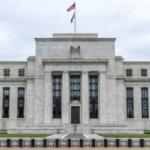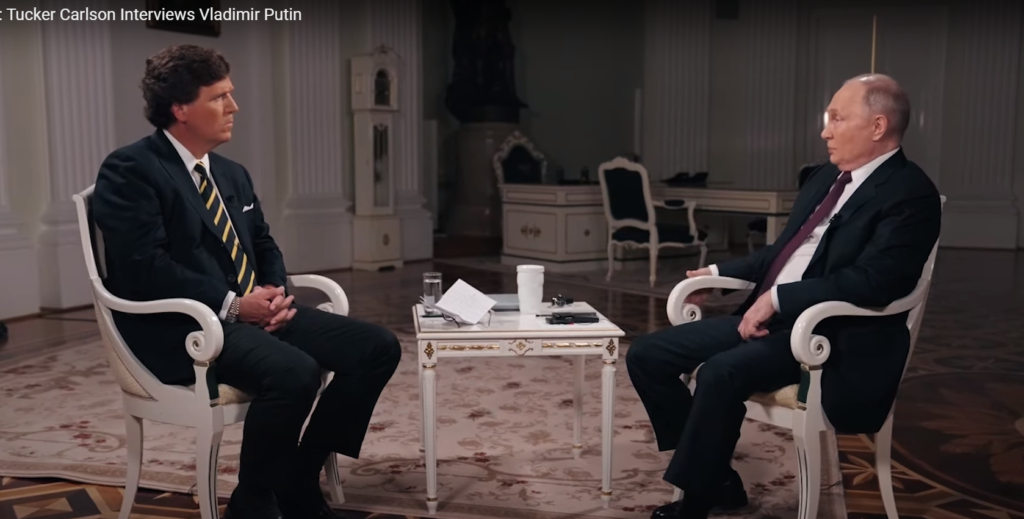By a guest author.
Is this supposed to be a leading nation, a torch of democracy, a superpower, the place on earth where millions are flocking to? Good heavens! The debate held between former President Donald Trump and President Incumbent Joe Biden has made a depressive effect. The country – or a nation, as Americans love to say, though a nation they are not, rather a motley of peoples and races and creeds – that claims to have the best economy the best political system, the largest number of Nobel Prize winners, the best scientists and technicians, the best universities, the best this and the best that, that country has put forward two men to run for president, neither of whom is someone I would like to follow even if paid for. Neither appears to be a man under whom I would ever like to serve; neither inspires, neither instills admiration or awe or respect; neither grabs my attention in any positive way. Watching and listening to the debate was a huge waste of time. Bland, uninspiring, predictable guys, with nothing whatsoever to say, with nothing to impress the audiences, with nothing whatsoever to propose.
Not that they are exceptions in the long line of American presidents and presidential candidates. Most of their recent predecessors were as bland, unimaginative and uninspiring as they make them. Be it He-Clinton or She-Clinton, be it Obama or Kamala-the-laughing-Harris… Some have taken credit and continue to take credit for being female or non-white, the first female or the first non-white holding such a high post… as if that were the most important thing about leading the allegedly best country the world has seen. What a shame, what an embarrassment, what a humiliation! Leaders of much, much smaller countries – think of Robert Fico (pronounce: FEE-tsaw) of Slovakia or Victor Orbán of Hungary – are far, far better, smarter, cleverer, more prudent, and better educated. Unfortunately, a Fico or an Orbán with their common sense and education are not at the helm of a superpower but at the helm of the superpower’s vassal states. What a pity! If we could but trade Fico or Orbán for the likes of Biden, Trump, von der Leyen, Macron, Scholz, Stoltenberg… Sadly, that’s not what we can do. Sadly, we are forced to suffer the policies of the loons and morons with their religion of climate change, war on Russia, ever more pandemics, ethnic replacement and their contempt for human biology (like when individuals can decide what sex they are) and sound morals (like when yesterday’s shame is today’s pride and the other way round).
But you know what? People are still viewing America as the Mecca of the world, as the Promised Land, while Americans (in fact a concoction of nations and races and creeds and – to be up to date with terminology – the many genders) are still envied and somehow regarded as a chosen people. And this chosen people, this exceptional people are now divided over which of the two embarrassments will lead the fifty states towards the abyss. Watching the two guys – Donald and Joe – I just could not help thinking about the many emperors of ancient Rome: those, too, were for the most part disappointing in any respect and by any measure. The empire was big and yet it was inevitably on a crash course with the external and internal forces that were about to smash it, disrupt it, make it into nothing. And still, and despite all that, even long, very long after the Empire had collapsed, the many nations regarded it as a wonder of wonders: the so-called barbarians modelled the administration of their kingdoms that arose on the ruins of ancient Rome on that of the Roman Empire and continued to use Latin – the Roman Empire’s language – for centuries after the demise of the Empire. Among the dead languages Latin used to be the most alive. The same fate waits English, whose vocabulary is – what an omen! – for the most part Latin, including such common words as tent, tender, money, castle, street, city, human, treat, language, animal, apply, delete, record, intelligent, army, suggest, support, sex, gender… – the list is unending.
Consider also how American public and administrative institutions along with some of the most famous symbols are modelled on ancient Rome with the words like capitol, senate, the phrases e pluribus unum (=one [state] from many [states]), or novus ordo seclorum (=a new order of the ages) and annuit coeptis (= he favoured the commencement) that appear on the Great Seal of the United States and the dollar banknote. The United States with its many military bases around the world (more than eight hundred) make one think about the Roman legions also scattered around yesteryear’s world, while the form of the American republic seems to be evolving towards a dictatorship and then… monarchy. You don’t believe it? Rest assured these processes are already under way. You haven’t noticed? Not easy to notice. Such changes take time. They seem to happen quickly only when viewed through the pages of a historical book. There, you turn another page and the political system has changed or a war has been won or lost or a country has been conquered. In reality it all takes time which makes the changes imperceptible to the common man.

Of the 300 million inhabitants, some of whom have graduated from the famed Ivy League, this world’s leading democracy has been able to roll out an octogenarian and almost an octogenarian with little or nothing to say. But then why should we wonder? A Biden or a Pelosi, an Obama or a Clinton have been almost all their adult lives in politics. They are no scholars or scientists, no real entrepreneurs or thinkers. They have been focused on making their careers and – especially – on making money. Accordingly, they are capable of changing their mind as often as required by the circumstances and they only care about their image. The speeches that they make – or rather read – are the usual stuff prepared by other people. They have learnt how to smile and how to wave hands; they have learnt how to play up to the audience by saying sweet little nothings; they have been groomed to be what they are and they have been paid for it. They are prisoners of the system and their ambitions. Just as it was in ancient Rome. All those emperors, dictators, generals and senators with their petty interests and warped psyche, with their conspiracies and civil wars, with making their weight felt at the expense of the smaller countries. And the same populace around them, then and now, demanding bread and Olympic games, or cheap gas and Hollywood-like entertainment. Roman gladiators have been replaced with Super Bowl players while Roman self-pride (we are the best in the world) has been replaced with American self-pride (we are the world’s best).
The world’s leading democracy! Dear me! Just listen to them candidates, to the content of their statements, to the mutual accusations! Glean the information from their speeches and from the media about the several millions of aliens entering the United States and occupying it piece by piece, and confront it with the pathetic declaration of the need to stop Russia because otherwise it will… occupy Europe! What if Russians decided to do it the way those millions of aliens are doing every year, settling in the United States and feeding on it? Would such occupation be palatable?
One can only wish the big United States had a Viktor Orbán or a Robert Fico! The world would be a nice place to live. Just imagine a debate between a Viktor Orbán and a Robert Fico, will you? You’d taste common sense and it would be a pleasure to listen to. Sadly, our choice is between a total globalist and a semi-globalist; between two peace-loving leaders of the best ever democracy who nonetheless cannot extricate the United States from wars and conflicts; our choice is between someone who has already during his term been undermined by his administration and someone who during his term is being controlled by his administration. What a choice!


















